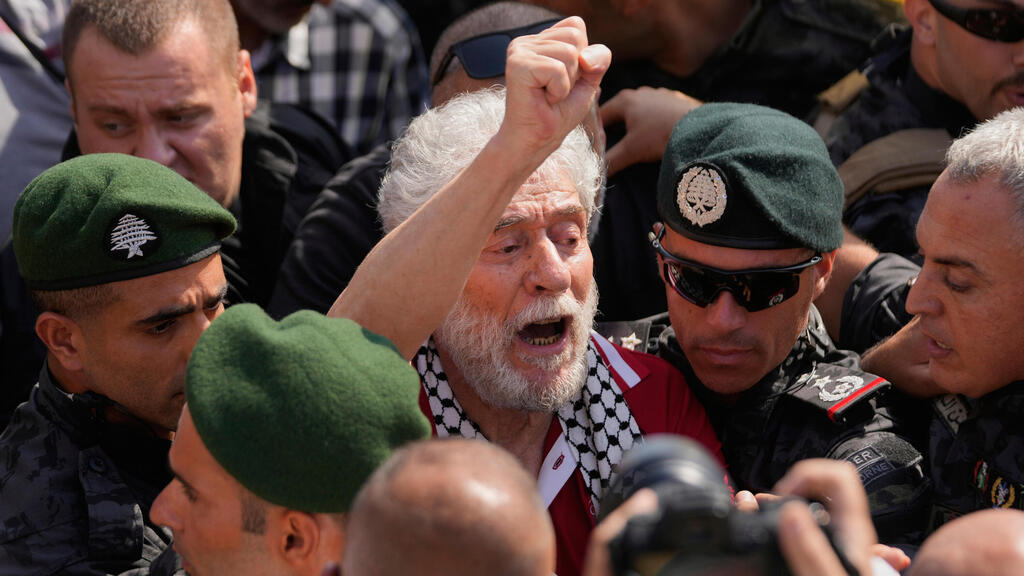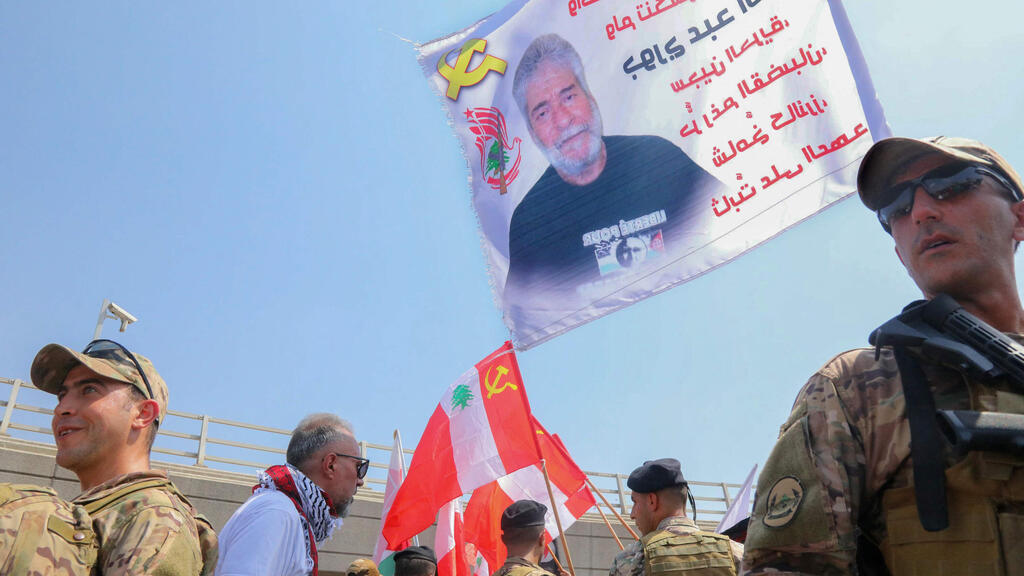Activists campaigning for Abdallah’s release called on supporters to gather at Beirut’s airport road to await his arrival, describing his freedom as a “day of celebration for those committed to the Palestinian cause and opposed to normalization.” A French court conditioned his release on leaving France permanently.
Georges Ibrahim Abdallah being welcomed in Lebanon
Lebanese media broadcast images and videos tracking his flight until landing. Lebanese parliament members greeted him at the airport, where he reunited with his family as crowds demonstrated in support of Palestine. In a speech upon arrival, Abdallah said, “The steadfastness of prisoners inside depends on the resolve of those outside.
“Resistance in Palestine must escalate. It is a shame that millions of Arabs watch the suffering of Palestinians and children dying of hunger in Gaza. Martyrs of the resistance are the foundation of liberation. As long as resistance exists, there is a return to the homeland. Israel is living its final chapters.”
Yaacov Bar-Simantov, a Mossad agent at the Israeli embassy in Paris, was murdered in early April 1982. An assassin ambushed him at his apartment building, shooting him dead in front of his wife and eight-year-old daughter.
His 17-year-old son, who heard the gunfire but did not witness the murder, chased the assailant, later identified as Jacqueline Esber, who escaped into the Paris metro. Her fate remains unclear. Abdallah, a 74-year-old Maronite Christian, was among France’s longest-serving prisoners.
Injured during Israel’s 1978 Operation Litani against Palestinian terror groups in southern Lebanon, he joined the Popular Front for the Liberation of Palestine, a pro-Syrian Marxist group led by George Habash, that year. Abdallah maintained ties with terror organizations in France, Italy and Germany.
His group claimed responsibility for five attacks in France between 1981 and 1982. Abdallah was arrested in 1984 under unusual circumstances in Lyon, where he sought police protection, claiming Mossad assassins were pursuing him.
Holding an Algerian passport, among others he had used, he was soon identified as Abd al-Qadir Saadi, leader of the FARL terror group. French authorities found submachine guns and communication devices in one of his Paris apartments.
Initially sentenced to four years in 1986 for weapons possession, Abdallah received a life sentence in 1987 for his role in the diplomats’ murders and an attempted killing of an American diplomat in Strasbourg in 1984.
Georges Kiejman, a lawyer representing victims, recalled in his memoirs that Abdallah acted during the trial “like the terrorist he claimed not to be,” cursing attendees as “pigs” and “dirty imperialists” before being expelled from the courtroom.









